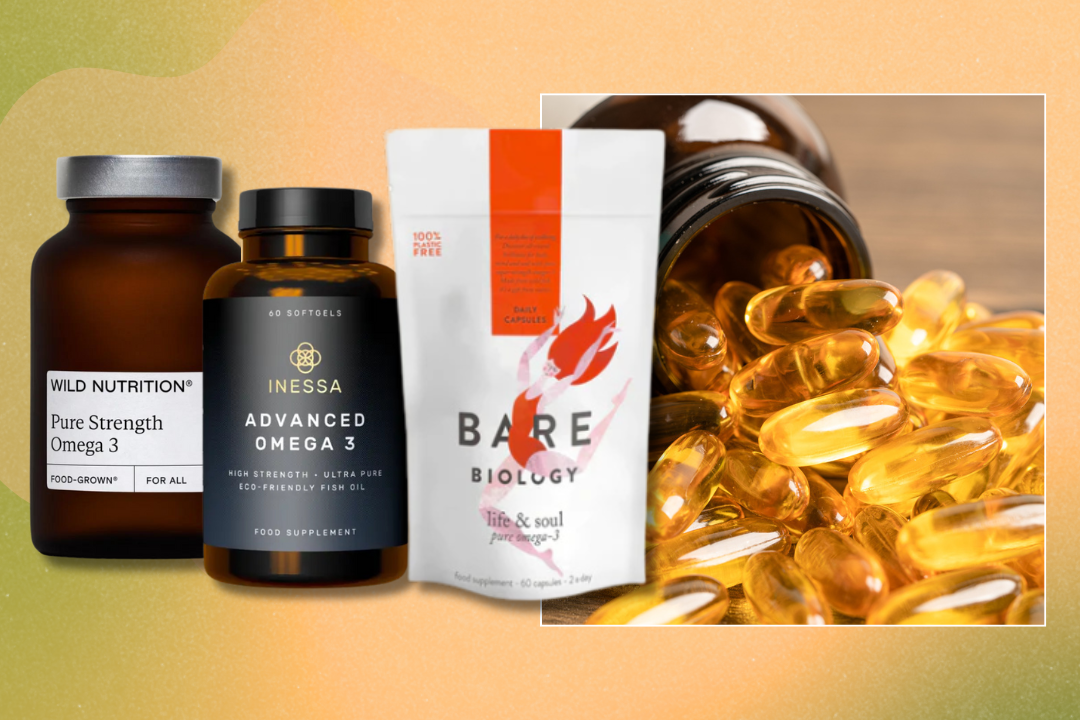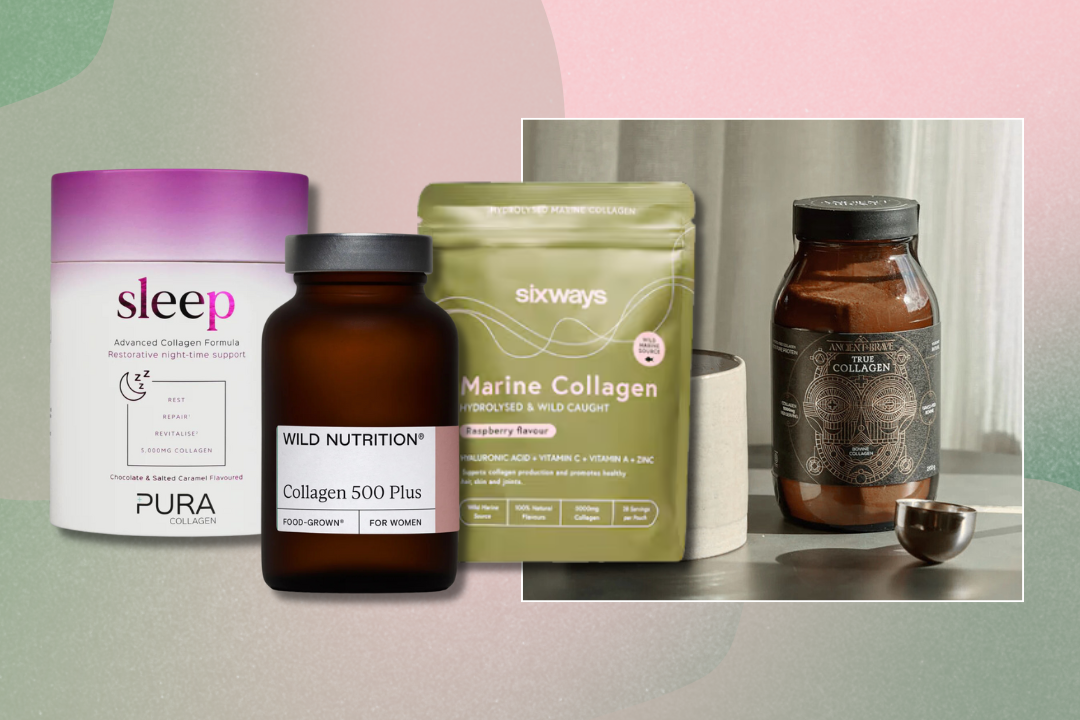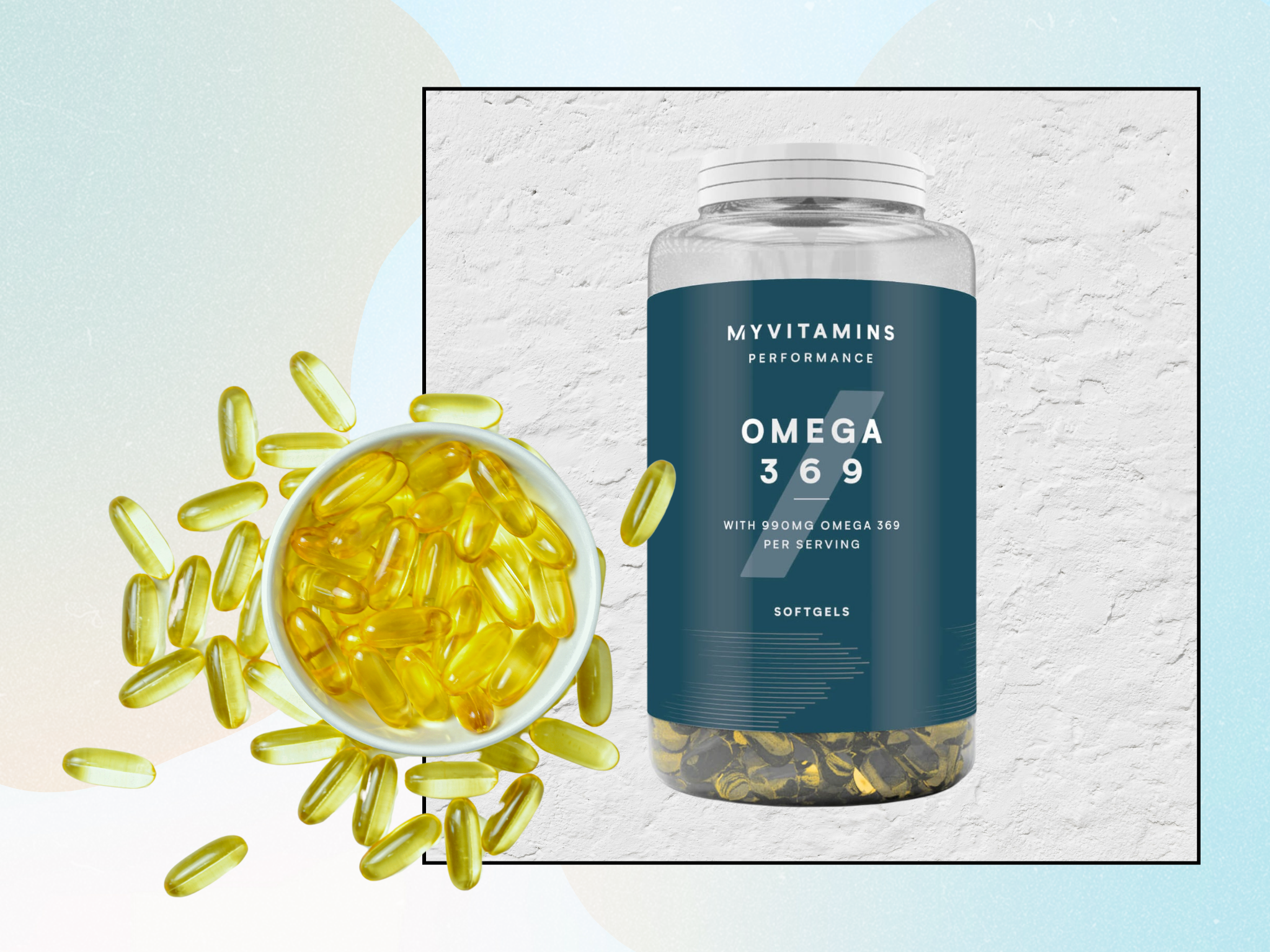The Independent's journalism is supported by our readers. When you purchase through links on our site, we may earn commission. Why trust us?
Best omega-3 supplements to introduce into your diet, according to experts
These supplements have the power to improve brain, eye and heart health while boosting your overall wellbeing

Fish oil – and its omega-3 nutrients – have received a lot of attention over the years. In the early aughts, the UK government was pushing for better brain health across Britain, urging us all to eat omega-3-rich oily fish at least once a week.
Later, as the supplement boom began, cod liver oil was firmly back in fashion. But a 2022 study showed that one in ten fish oil supplements were rancid by the time they reached consumers, and we all wondered whether we should bother taking them at all.
Medical professionals still recommend fish oil, however. “Omega-3 fatty acids are important in supporting the development and function of all organ systems in the body,” says surgeon and health expert Professor Peter Calder. “They promote brain and eye development in infants and children, and cognitive function right across the life course.”
Omega-3 is a “healthy fat”, which contains EPA (eicosapentaenoic acid) and DHA (docosahexaenoic acid). These components help the heart and blood vessels work properly while helping the body control inflammation. “Through these effects, they promote health and decrease the risk of many diseases,” he adds.
Yet it can be tricky to know where to start when it comes to finding the best supplements and the best multivitamins, especially with so many new combinations and innovations available. Fish oil is one of the oldest and simplest dietary supplements, derived from the bodies of oily fish like salmon, tuna and mackerel. Cod liver oil, as the name suggests, comes from cod. But make no mistake, quality matters, and fish oil supplements and omega-3 supplements vary in cost, quality and type.
According to nutritional therapist Sasha Parkin, omega-3 also supports healthy hormone regulation, a priority in midlife. Many women who choose a blend of supplements and whole foods to support hormone health opt for omega-3 supplements and foods like flaxseed. Some studies show that a high omega-3 diet can help ease hormonal symptoms like mood swings and fatigue, and that it might impact thyroid function and insulin sensitivity, which affects blood glucose regulation.
Nutritionist Clarissa Lenherr explains that it “can be tricky to get adequate omega-3s in our diet, especially if you struggle to eat oily fish such as salmon, mackerel, anchovies and sardines, which are some of the best sources and provide EPA and DHA”. To that end, you may find that you want to supplement your diet with omega-3.
When choosing a supplement, a good tip is to look at the levels of EPA and DHA in your fish oil, cod liver oil or omega-3 supplements. “The ratio of these depends on the aim you have. For example, if you’re focusing more on brain health, DHA may be higher than EPA,” Lenherr says.
If you’re keen to try and support brain function, heart health, lower inflammation levels and ease hormonal symptoms, read on for everything you need to know about omega-3 supplements, as well as the best ones to buy, according to our panel of expert nutritionists.
Why you can trust IndyBest reviews
Professor Peter Calder, Sasha Parkin, Claire Johnson, and Clarissa Lenherr are leading experts in their respective fields of surgery and longevity medicine and nutrition. A cohort of qualified experts, we turned to them for the facts about supplements and asked for objective brand recommendations.
Our wellbeing editor and team of testers then tried every supplement on this list to measure the effects of each supplement. We also assessed value for money, effects and the benefits or drawbacks of each trusted product.
The IndyBest team also test a range of health-related supplements, from the best multivitamins to the best probiotics, best way to get more B12 and even advice on how to manage sleep with CBD oils. We have a wide range of expert-led pieces, so you can trust all of our buying guides and explainers are backed by an extensive amount of testing and expertise.
1Inessa advanced omega-3

- Size 60 capsules
- How to take it Take one a day with water
- Why we love it
- Quality capsules
- High bioavailability
“This is the best value premium omega-3 on the market, as the amount of omega-3 you get per capsule is great and leaves no fishy aftertaste,” Lenherr says.
Our fitness and wellbeing editor agrees: “I always recommend Inessa because this brand is rigorously tested and only contains the purest ingredients with no fillers or nonsense. They’re a safe bet for a quality supplement.”
Helping you get all the omega-3 you need in one clinical-strength softgel, each dose of Inessa’s fish oil contains 480mg EPA and 360mg DHA, while coming in natural triglyceride form for high bioavailability, meaning it absorbs well into your system.
Recommended to support heart, brain and eye health, the omega-3 gels can also help maintain healthy blood pressure, exercise recovery, and reduce inflammation, which can help with aches and pains, especially as you age.
Some brands recommend taking up to four capsules a day, so this one-capsule solution is a great fuss-free option for those who don’t enjoy swallowing pills or might forget to take more than one.
2Myvitamins essential omega-3

- Size 250 capsules
- How to take it Take three capsules a day with food
- Why we love it
- Affordable
- Larger supply
These omega-3 supplements from Myvitamins also contain EPA and DHA, helping to contribute to the normal function of the heart. Packaged into a convenient softgel, each contains 300ml of omega-3 fish oil per serving.
If this is your first foray into the world of fish oil supplements, this is an affordable, no-frills option that can help to get yuo started. You get 90 capsules for less than £10, so if you’re taking one to three capsules a day with a meal, they’ll last you a long time.
The brand also offers a vegan alternative that contains 500ml of DHA algae oil per serving for an affordable £9.99. Those following a vegan or vegetarian diet struggle even more to consume healthy omega-3, 6 and 9, so this alternative is a great option if you don’t eat fish.
3Wild Nutrition pure strength omega-3

- Size 120 capsules
- How to take it Take four capsules a day with water
- Why we love it
- Sustainably sourced fish oil
- Quality supplements
- Take note
- Four a day dose might be a lot for some people
“Wild Nutrition uses fully food-grown supplements, with no synthetic nutrients or fillers, and it is Marine Stewardship Council sustainably sourced,” Lenherr explains.
These are important factors to consider when shopping for supplements. In a bid to save money, people will often invest in cheaper supplements, but in doing so, they’ll compromise purity and see fewer benefits. Ethical sourcing is also paramount when searching for the perfect product, and trusted brands will always display their sustainability credentials clearly.
Supporting heart, brain and eye function, Wild Nutrition’s MSC sustainably sourced supplements should be taken four times a day for an optimum dose. Each dose contains 800mg of EPA and 400mg of DHA, with the softgels described as being easy to swallow and kind to your digestive system.
“I’ve been taking four of these supplements a day for over a year as part of my hormone support protocol. Wild Nutrition is a brand I always trust to deliver a quality product,” says our wellness editor Emilie Lavinia.
4Bare Biology life and soul omega-3 fish oil

- Size 60 capsules
- How to take it Take two capsules per day with water
- Why we love it
- Nutritionist-recommended brand
- Purest fish oil available
Bare Biology’s fish oil supplements contain 1,460mg of fish oil per two capsules, covering all your needs. They contain EPA and DHA, and according to Lenherr, this is the “strongest, purest fish oil you’ll find”.
Bare Biology sources from sustainably caught Norwegian fish, and the brand claims there’s no fishy aftertaste. Touted as easy to swallow and gentle on digestion, anyone 12 years old and upwards can take the supplements.
The brand also offers a vegan omega-3 alternative and an omega supplement specifically targeted for pregnant people, so your needs are still covered if hitting your quota is a little more difficult for you.
5Nordic Naturals ultimate omega fish oil supplements

- Size 120 capsules
- How to take it Take two capsules per day with food
- Why we love it
- No risk of heavy metals or toxins
- Lemon flavour
- Verified as sustainable
- Take note
- Expensive
These Nordic Naturals supplements are perfect for those looking for a higher dose of omega-3. The brand suggests two softgels for your daily dose, equating to a 1,280mg total of omega-3 (toting up 650mg EPA and 450mg DHA respectively).
Lenherr says the brand’s products have “undetectable levels of environmental toxins, such as PCBs and heavy metals, so [this] is a great quality supplement brand you can fully trust”.
Sourced from wild-caught sardines and anchovies, the softgels are lemon-flavoured, to help eliminate the fishy aftertaste found in many omega-3 supplements. Plus, they’re certified by Friends of the Sea.
6Wiley’s finest easy swallow mini softgels

- Size 60 capsules
- How to take it Take two capsules per day with water
- Why we love it
- Smaller capsules are easier to swallow
- Sustainable
- Great level of purity
Offering EPA and DHA in each serving, these supplements are 55 per cent smaller than a regular strength fish oil softgel but boast the same health benefits. This makes them ideal for anyone who finds it difficult to swallow pills – something that can really get in the way of your health goals.
Made with concentrated wild Alaskan fish oil and made at a family-owned and operated cGMP refinery, each serving contains 360mg EPA and 270mg DHA for a total of 630mg per capsule.
Our wellness editor says, “I’ve been relying on Wiley’s Finest for quality high-strength fish oil supplements for years. The range caters to different health needs and concerns and offers vegan options too, but these minis are my favourites. They still pack a punch, but the capsules are much smaller than the giant softgels you might find from other brands.”
The brand recommends taking two capsules per day, so with 60 in a bottle, one bottle should last you a month. However, £17.99 a month is a big outlay for fish oil.
Omega-3 FAQs
What do omega-3 supplements do?
Omega-3 works hard. It helps the heart and blood vessels work properly while helping the body control inflammation. Nutritional therapist, Sasha Parkin adds that omega-3 is also beneficial for healthy hormone regulation. “Nutrition plays a crucial role in menstrual health; as hormones change throughout the month, essential vitamins and minerals can help support common period symptoms including cramps, mood swings, sleep disturbance, bloating and skin breakouts. 43 per cent of women report that their periods can disrupt their eating and sleeping patterns, so increasing your omega-3 intake can be beneficial, especially during the luteal phase,” explains Parkin.
But despite omega-3 being incredibly beneficial for your health, many people struggle to consume enough. “The important thing with omega-3s is that our bodies cannot produce them on their own, so we are reliant on dietary intake,” nutritionist Clarissa Lenherr explains. “It can be tricky to get adequate omega-3s in our diet, especially if you struggle to eat oily fish such as salmon, mackerel, anchovies and sardines, which are some of the best sources and provide EPA and DHA.”
Dr Carrie Ruxton from Health & Food Supplements Information Service explains that “intakes remain far too low, as just one-third of the UK population eats oily fish. Worse still, the next generation seems to be heading for fish avoidance, with British teenagers eating just eight servings a year instead of the recommended one a week. Most of us are missing out on important nutrients, but a fish oil or omega-3 supplement provides a simple, acceptable means to bridge the gap when people can’t or won’t eat a weekly serving of salmon, mackerel or tuna”.
Is fish oil safe to take?
Nutritionist and women’s health expert Claire Johnson explains that, “since the liver filters toxins, cod liver oil may have a higher risk of contamination from environmental pollutants like heavy metals. To stay safe, choose a high-quality supplement, whether you decide on cod liver oil or fish oil, from a reputable brand that publishes purity test results. My favourite brand is Bare Biology, which tests its products for purity and quality, with five-star purity and quality ratings from International Fish Oil Standards.”
Fish oil capsules might also have been stored for longer than they should so always buy from a trusted brand to avoid a compromised product. Fish oil has a shelf life of around 1-2 years, depending on the formula. If you’re concerned about a use by date, you can break open a capsule. If the oil has a strong, unpleasant fishy smell it could be rancid and oxidised which means it won’t offer the same health benefits and could upset your stomach.
How to choose an omega-3 supplement
When choosing a supplement, a good tip is to look for one with the greatest amount of EPA and DHA. “The ratio of these depends on the aim you have. For example, if you’re focusing more on brain health, DHA may be higher than EPA,” Lenherr says.
While there’s no reference daily intake (RDI) set for omega-3 in the UK, the cholesterol charity Heart UK suggests adults should have around 500mg of combined EPA and DHA per day. If you’re vegan or vegetarian, there are algae-based supplements that can also provide EPA and DHA.
It’s also important to look for products that are IFOS certified (a third-party testing programme for fish oils that helps test purity, quality and safety) and sustainable supplements (look for Friends of The Sea or Marine Stewardship Council certification). Cheap lower quality may not be ethically sourced and will likely not contain pure ingredients that absorb effectively into the body. It’s also very important to check expiration dates on products like fish oil because this supplement is derived from an organic source and won’t benefit you if it’s rancid when you take it.
As always, it’s worth checking with your doctor or nutritionist before taking new supplements, particularly if you have specific health concerns, are on medication or you’re pregnant (many omega-3 supplements aren’t recommended in pregnancy, owing to the high vitamin A content). Those on blood thinners should also tread with caution, as taking high doses of omega-3 can thin the blood.
Looking for more dietary supplements? We’ve rounded up the best protein powders and the best magnesium supplements









